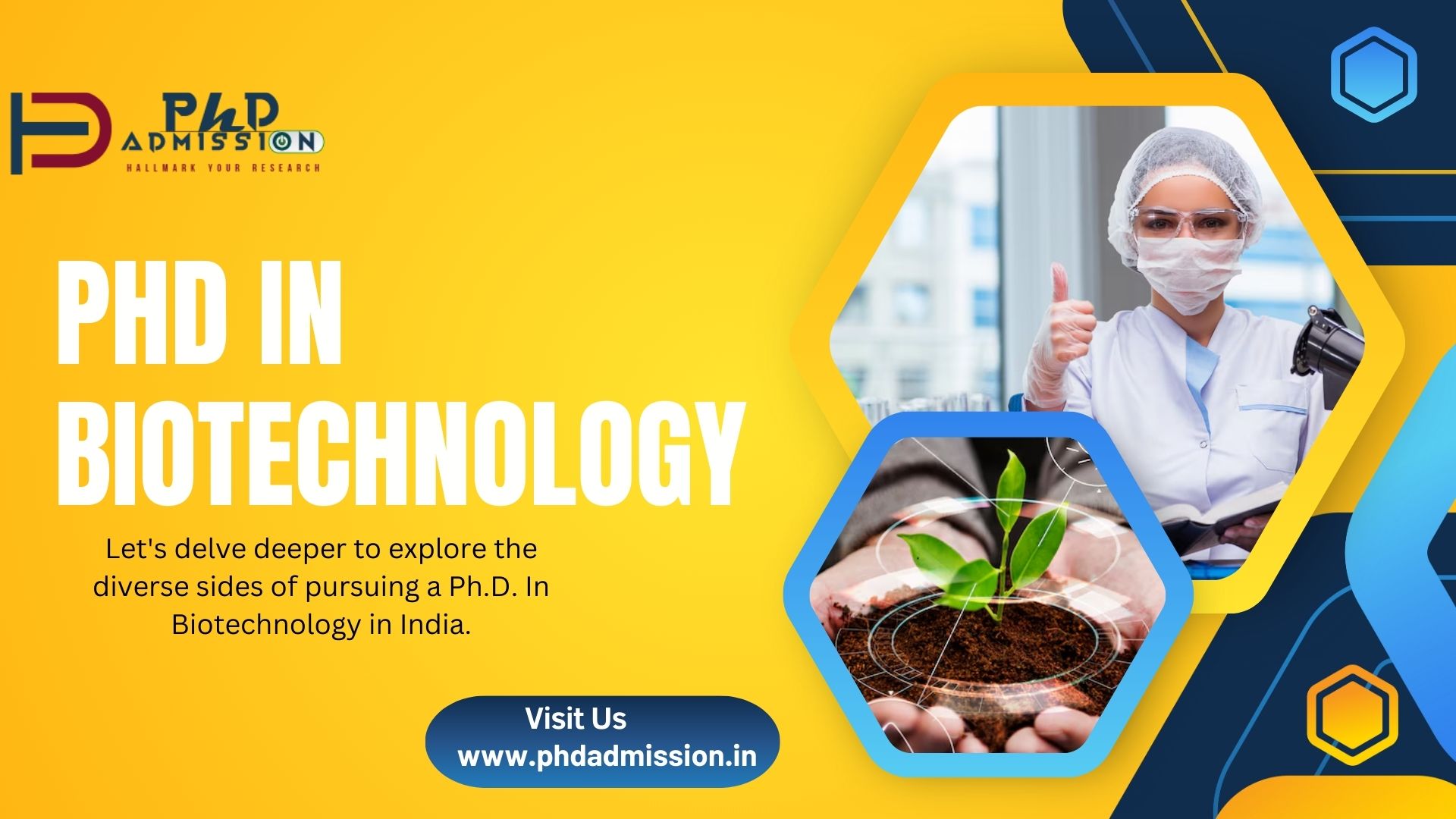PhD Admission 2025 Apply Online, Eligibility, Entrance Exam Date, Application Process, Coursework, Thesis & Synopsis
Pursuing a PhD has emerged as a great game changer for candidates aiming to develop their academic qualifications. The PhD completion may have its Latin roots, but in modern-day academia, it represents understanding and mastery in a particular subject area.
Table of Content
- What is a PhD?
- PhD Admission: Key Highlights
- PhD Admission 2025-2026
- Top University of India PhD Admission 2025
- Ph.D. Admission Entrance Exam Dates 2025
- PhD Admission 2025: Top Entrance Exams Syllabus
- Eligibility Criteria of PhD Admission 2025
- PhD Admission 2025:Coursework
- PhD Admission 2025:Thesis Preparation
- PhD Admission 2025:Synopsis Preparation
- Conclusion
What is a PhD?
PhD, also known as Doctor of Philosophy, is the best academic degree in every field whether it is personal or professional. The primary focus of a PhD is on academics, which requires the candidates to contribute original information in their subject area with the help of a dissertation or thesis. Completion of a PhD requires 3-6 years. It may get extended after 6 years but the penalty is applied for more than 6 years in PhD.
PHD stands for Doctor of Philosophy, represents innovation, conceptual thinking, and problem-solving expertise. PhD For working professionals, it often involves utilizing advanced research methodology to address complex business strategies.
PhD Admission: Key Highlights
|
|
Application available |
|
Entrance Exams |
|
Eligibility | Master’s degree with a minimum of 55% marks (relaxation for reserved categories) |
Selection Process |
Entrance exam scores, research proposal evaluation, and interview |
Duration of Program |
|
Scholarships |
|
Top Universities |
|
PhD Admission 2025-2026
PhD Admission for academic session 2025-26 is open in almost all the government and private universities in India. Candidates who wish to be admitted for a Doctor of Philosophy course like PhD in Engineering, Humanities, Science, Commerce, Law, Physiology, Business Administration can apply for the entrance exam from the official website of the university.
Every year around 9-10 lakh students apply for the PhD program and appear for the entrance exams conducted at the National and state level. There are many governments and private universities in India which provide PhD admissions . Some universities also offer scholarships and funding to the students to support them financially. Candidates who have completed their master’s degree and want to obtain a Doctor of Philosophy (PhD) degree can apply for the PhD admissions 2025. To apply for the PhD admission in 2025, they need to fill in the admission form through the desired University and qualify for the entrance exam.
Top University of India : PhD Admission 2025
There are several universities and colleges in India which offer admission to PhD courses. The list of the top universities which provide PhD programs with the best academic growth and research.
S.No.
| Government University | Private University |
1 |
|
|
2 |
|
|
3 |
|
|
4 |
|
|
5 |
|
|
Ph.D. Admission Entrance Exam Dates 2025
There are various entrance exams like UGC NET, CSIR NET, GATE (Graduate Aptitude Test in Engineering), and PhD Entrance Exam Dates 2025 and other Universities entrance exams. Candidates seeking admission to the PhD Program 2025 must qualify for the entrance exams to secure a place in the program. The table mentioned below is the list of upcoming entrance exams.
|
|
|
|
|
|
|
|
|
|
|
|
PhD Admission 2025: Top Entrance Exams Syllabus
|
|
| The UGC NET syllabus is divided into 2 sections which are Paper 1 and Paper 2. Paper 1 is the same for all the candidates, regardless of their subject. Paper 2 is subject specific and includes questions related to the candidate chosen subject.
|
|
|
|
The CSIR NET syllabus typically covers the following subjects: Physical science which includes mathematical methods of physics, classics mechanics, electromagnetic theory, quantum mechanics, Thermodynamics and statistical physics, electronic and experimental methods. |
|
The GPAT 2025 exam consists of 5 sections: Pharmaceutical chemistry and allied subjects, Pharmacognosy and allied subjects, Pharmacology and allied subjects and other subjects. Candidates will have a total of 180 minutes (about 3 hours) to complete the exam.
|
Eligibility Criteria for PhD Admission 2025
To apply for the eligibility criteria for PhD admission in 2025, Candidates must fulfill some basic requirements and criteria. The PhD eligibility criteria may vary from university to university and college to college. However, the minimum eligibility criteria that a candidate must fulfill are given below:
- A postgraduate degree (Master’s or M.Phil.) in a related field from recognized university or college with minimum 55% in the postgraduation. There are some of the universities also consider candidates with bachelor’s degree and at least 60% marks with completion of postgraduate diploma or certificate course.
2. UGC NET/CSIR Qualified
3. The postgraduate degree should be in a field relevant to the candidate’s intended area of research for their PhD program.
4. Candidates who are in the final year of their postgraduate degree may also apply for a PhD program, but their admission is usually conditional upon the successful completion of their degree with the required marks.
PhD Admission 2025: Coursework
PhD coursework is an integral part of the doctoral journey, designed to equip candidates with advanced knowledge and research skills. It typically spans 6 months to 1 year and includes:
- Core Modules:
- Research Methodology: Understanding research designs, data collection, and analysis techniques.
- Advanced Topics: Subject-specific courses tailored to deepen domain expertise.
- Elective Courses:
- Candidates may select electives based on their research interests and career goals.
- Assignments and Assessments:
- Regular assignments, presentations, and tests ensure active learning and preparation for research.
- Comprehensive Exam:
- At the end of the coursework, candidates must pass a comprehensive exam to proceed to the research phase in PhD Admission 2025.
PhD Admission 2025: Thesis Preparation
The thesis is the most critical component of a PhD program. It showcases your ability to conduct independent research and contribute original insights to your field.
- Selecting a Research Topic:
- Choose a topic that addresses a gap in the existing literature or solves a real-world problem.
- Ensure the topic aligns with your supervisor’s expertise and resources available.
- Conducting Literature Review:
- A thorough review of existing studies provides context and justification for your research.
- Methodology Design:
- Define your research methods, whether qualitative, quantitative, or mixed.
- Detail the tools and techniques for data collection and analysis.
- Writing the Thesis:
- A PhD thesis typically includes the following sections:
- Introduction
- Literature Review
- Research Methodology
- Data Analysis and Findings
- Discussion and Conclusion
- References and Appendices
- Submission and Defense:
- Submit the thesis as per the university’s guidelines.
- Prepare for a viva-voce where you will defend your work before a panel of experts for PhD Admission 2025.
PhD Admission 2025:Synopsis Preparation
The synopsis is a concise summary of your research proposal, submitted prior to beginning the thesis. It outlines your study’s objectives, significance, and methodology.
Key Components of a Synopsis:
- Title: A clear and precise title reflecting your research focus.
- Introduction: Context and background of your study.
- Objectives: Specific aims and research questions.
- Methodology: Overview of the research design and methods.
- Expected Outcomes: Anticipated contributions to the field.
- References: Key sources that support your proposal.
Tips for Writing an Effective Synopsis:
- Keep it concise (3-5 pages).
- Use simple and precise language.
- Ensure alignment with the institution’s format and guidelines for PhD Admission 2025.
Conclusion
PhD Admission 2025 offers an exciting pathway for scholars to contribute to knowledge and innovation. By understanding the eligibility criteria, navigating the admission process, and preparing diligently for coursework, thesis and synopsis, candidates can position themselves for success. With determination and focus, your PhD journey can lead to groundbreaking discoveries and impactful contributions to your field.
With the emergence of a new trend around the world, wherein an increased demand for roles that require extensive research is on the rise across diverse fields, a PhD opens a megastar career whether in Teaching, Corporate, or Consulting. A person can prepare for these examinations by understanding the qualifying requirements, and while applying to a university, ensure that their selection best aligns with their professional goals.

















